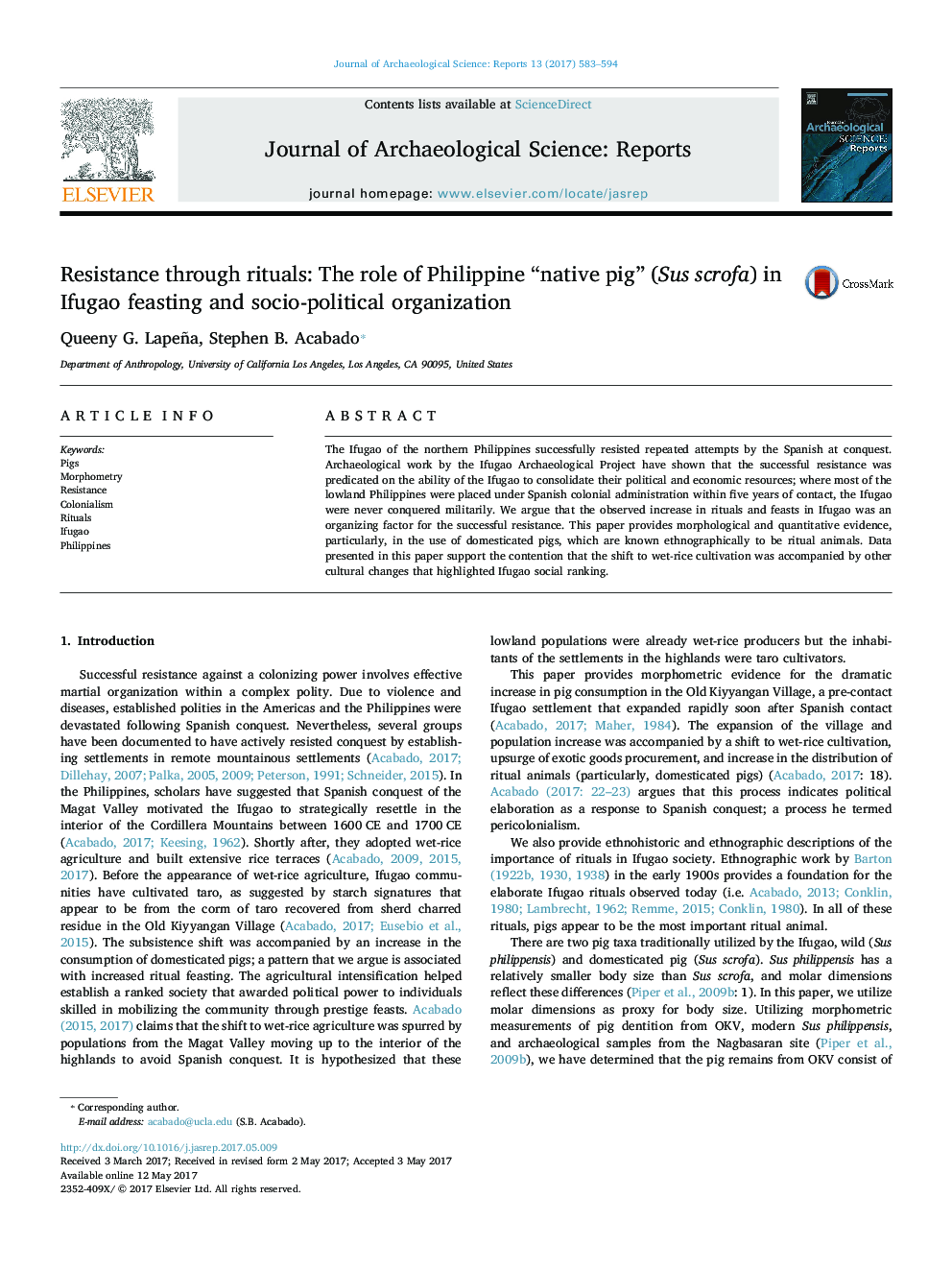| Article ID | Journal | Published Year | Pages | File Type |
|---|---|---|---|---|
| 5112441 | Journal of Archaeological Science: Reports | 2017 | 12 Pages |
Abstract
The Ifugao of the northern Philippines successfully resisted repeated attempts by the Spanish at conquest. Archaeological work by the Ifugao Archaeological Project have shown that the successful resistance was predicated on the ability of the Ifugao to consolidate their political and economic resources; where most of the lowland Philippines were placed under Spanish colonial administration within five years of contact, the Ifugao were never conquered militarily. We argue that the observed increase in rituals and feasts in Ifugao was an organizing factor for the successful resistance. This paper provides morphological and quantitative evidence, particularly, in the use of domesticated pigs, which are known ethnographically to be ritual animals. Data presented in this paper support the contention that the shift to wet-rice cultivation was accompanied by other cultural changes that highlighted Ifugao social ranking.
Related Topics
Social Sciences and Humanities
Arts and Humanities
History
Authors
Queeny G. Lapeña, Stephen B. Acabado,
